Winners
The Gratama Foundation has been making annual amounts of € 20,000 available since 2011 to award a ‘Gratama Science Award’ to students of the universities of Leiden and Groningen. The prize is awarded alternately by the universities in Groningen and Leiden to a young, promising academic.
2024
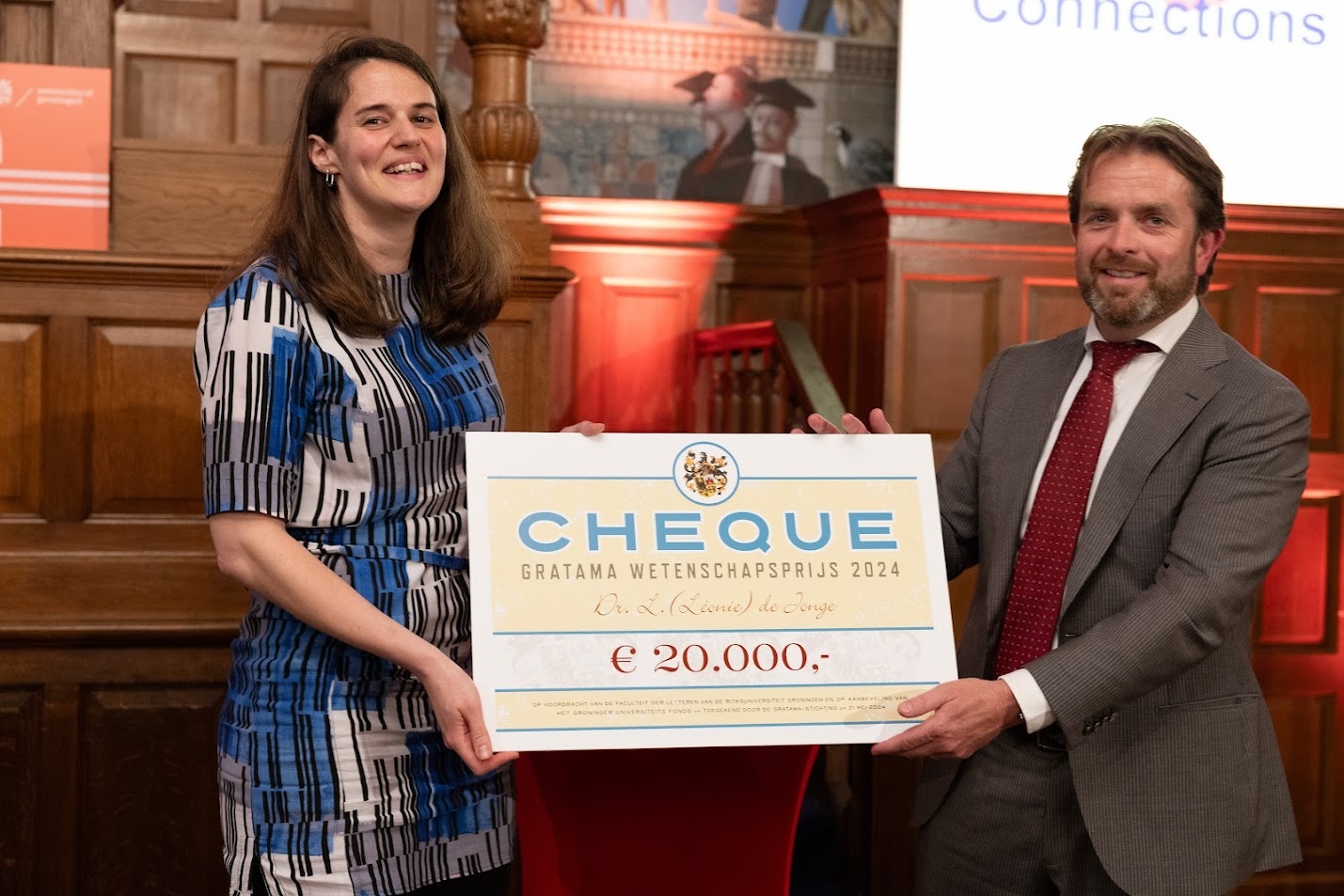
On 22 November 2023, the elections for the Dutch House of Representatives caused a lot of turmoil in Dutch politics. On that day, in the NOS broadcast Nederland Kiest [The Netherlands Votes], Léonie de Jonge was among the first to clearly explain the electoral victory of the right-wing party PVV–a victory that was unimaginable to many. The fact that, in that moment, De Jonge was asked to share her insights with the audience illustrates her position as an all-round respected public academic. She frequently issues advice about how to deal with far-right newcomers in representative bodies and warns of the risk of radicalization of extreme-right individuals and groups.
Léonie de Jonge’s reputation does not appear out of thin air. She was educated in Cambridge, where she earned her PhD in 2019 with a thesis titled The success and failure of right-wing populist parties in the Benelux, and she developed herself into a political scientist who is nationally and internationally renowned for her remarkable knowledge and understanding of the ideology and influence of extreme-right parties and actors in Europe. In her comparative study, she shows that the role of the media and the space that is given to right-wing populism in the public sphere are decisive for the success of parties such as the PVV. As a lecturer, De Jonge encourages her students to devote themselves to one of the major societal challenges of today: the political radicalization and polarization around issues such as identity politics, migration, and increasing inequality. In addition, through her roles as vice-chairperson of the Young Academy of the Royal Netherlands Academy of Arts and Sciences (KNAW) and member of the Young Academy Groningen, she initiates discussions about diversity and academic freedom.
The Gratama Science Award has found an outspoken winner in Léonie de Jonge with the great significance of her versatile and in-depth publications and her active role in the societal debate. Her academic work has exposed the normalization of radical and extreme-right stances and discourses in European democracies. Extreme-right opinions expressed by politicians about migration and national identity are spread by journalists and can subsequently be heard in all sections of society. As a result, they also have a far-reaching influence on the moderate middle of politics and society. The fact that De Jonge’s ideas about the spread and normalization of the radical and extreme-right ideology are being heard can sadly also be seen by the fierce and hateful responses they evoked. The Gratama Science Award is also a reward for Léonie’s civil courage, as she is one of the many academics who, in the face of threats and intimidation, passionately continues with her academic work.
2022
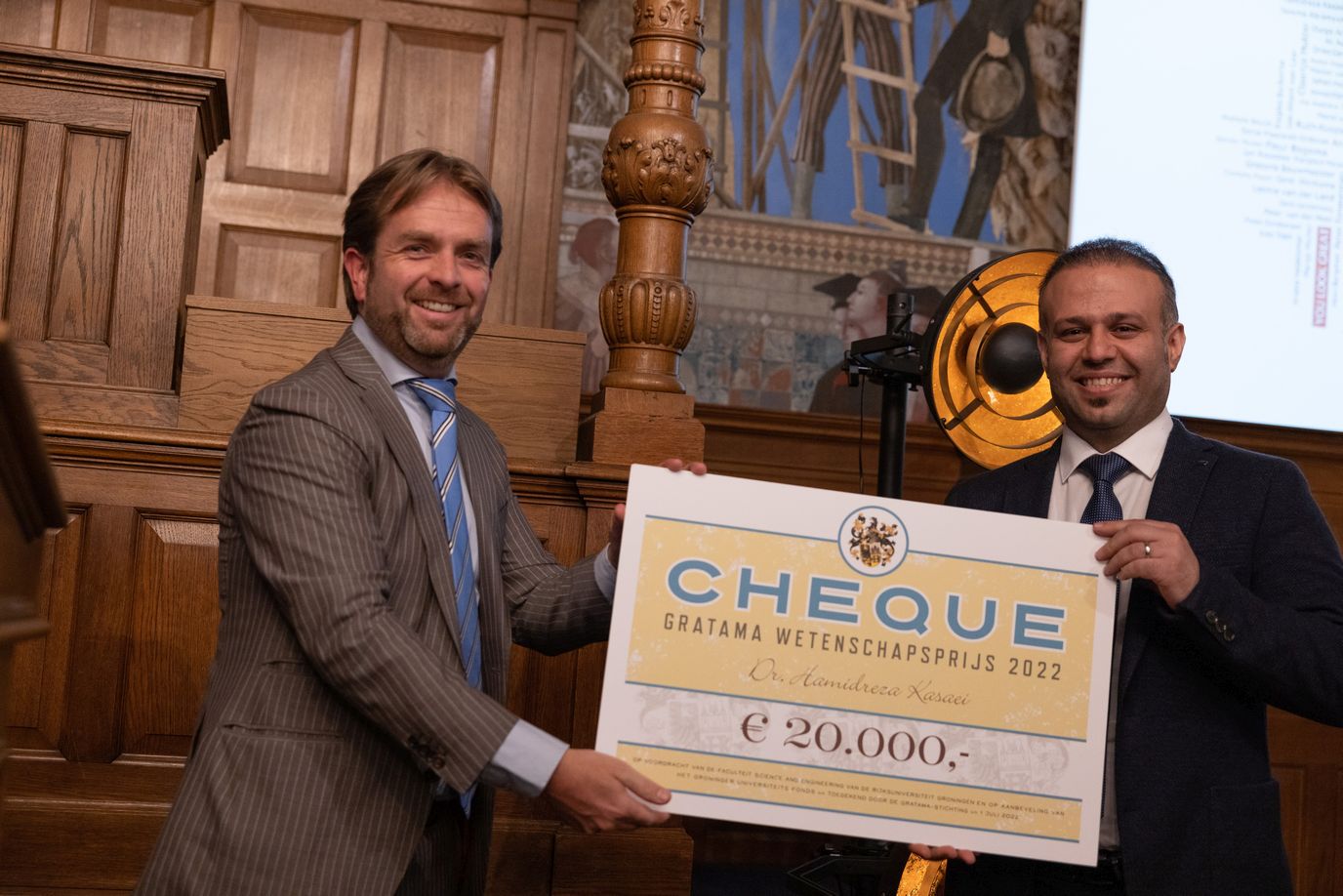
On 1 July 2022 the Gratama Science Award has been awarded to dr. Hamidreza Kasaei (1986), an assistant professor at the Faculty of Science and Engineering and chair of the Robot Learning Lab (IRL-Lab), part of the Autonomous Perceptive Systems (APS) group. His research on data-efficient open-ended machine learning methods has contributed to a breakthrough in cognitive robotics. In addition, he has also made an important contribution to the renewal of the Robotics degree programme, which is attracting a strongly increasing number of students. Kasaei is also a prominent speaker at leading global conferences on robotics and machine learning.
Nowadays, robots are rather capable of completing fixed tasks within a defined environment, however changes in the environment or task require complex, time-consuming, and thus expensive, re-programming by experts. Kasaei initiated the Lifelong Interactive Robot Learning lab, in which robots learn to adapt to new environments, gradually learn new concepts, and learn to communicate with non-expert human users, without any need for re-programming.
His research into two-armed robots that learn to manipulate objects based on visual information has drawn a great deal of international attention. This is leading to the development of a wide range of socially relevant applications, from agricultural robots that can boost productivity to care robots that can lighten the load in the medical sector during a pandemic.
Kasaei has been affiliated with the Computer Vision and Machine Learning lab of Imperial College London and was granted the Robotics: Science and System Pioneers Award in 2019.
2020
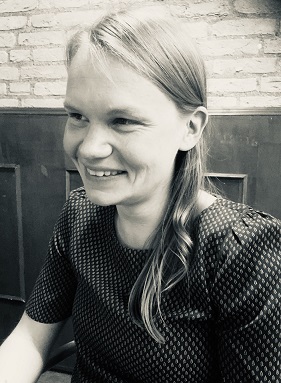
On 3 July 2020 the Gratama Science Award has been awarded to Dr Ymkje Anna de Vries of the Faculty of Behavioural and Social Sciences of the University of Groningen.
De Vries followed degree programmes in the fields of neuroscience, clinical science and psychosocial sciences at three UG faculties as well as the University of California. Her research takes an innovative approach, linking pharmacological results to adolescent behaviour. She studies depression in young people, and in particular the effectiveness of antidepressants and the consequences of administering them.
Ymkje Anna de Vries’s PhD thesis shows that the effectiveness and safety of pharmacological treatment for anxiety and depression, the most common psychiatric disorders among young people, are overestimated as a consequence of incorrect assumptions in existing publications. She claims that these disorders (as well as other disorders that emerge relatively late in life) can be prevented by identifying relatively mild, easily treatable problems in young people.
De Vries has already received two other prizes for her PhD thesis: one from the UMCG and one from the Royal Society for the Natural Sciences (Koninklijk Natuurkundig Genootschap). She also has a notable list of publications to her name. The Netherlands Initiative for Education Research of the Dutch Research Council has awarded her and two other researchers a research grant for a comparative study on anxiety and depression in secondary school pupils.
De Vries would like to use the € 25,000 prize money to go to the Harvard Medical School in Boston to study easy-access interventions that can be used to make students more resilient against stress. She subsequently wants to use this knowledge at the UG to monitor students for stress factors and intervene if necessary.
2018
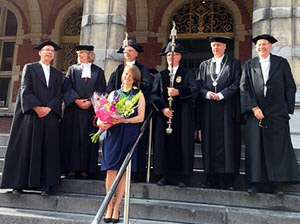
De Gratama Wetenschapsprijs is 6 juli 2018 uitgereikt aan Marthe Walvoort. Marthe Walvoort (1983) promoveerde in 2012 cum laude op haar onderzoek naar de synthese en toepassing van nieuwe bacteriële suikerbouwstenen. Ze leverde een belangrijke bijdrage aan de ontwikkeling van geautomatiseerde synthese van lange suikerketens, wat haar wereldwijd tot één van de eerste onderzoekers maakte die deze uitdaging is aangegaan. Walvoort heeft zich vervolgens tijdens een postdoctoraal verblijf aan het Massachusetts Institute of Technology (Boston, VS) toegelegd op de biologische productie van suikers, en de rol die suikereiwitten spelen in bacteriële infecties. Hier ontdekte ze een mogelijk verband tussen een bacteriële infectie en de auto-immuunziekte multiple sclerose.
Sinds november 2015 is Walvoort aangesteld als universitair docent (tenure-track) en Rosalind Franklin Fellow aan de Faculty of Science and Engineering van de Rijksuniversiteit Groningen. Haar eerste onderzoekslijn richt zich op de bijzondere suikers die van nature in moedermelk aanwezig zijn, maar in babymelkpoeder ontbreken. Deze suikers dragen bij aan een gezonde ontwikkeling van de pasgeborene, maar er is nog weinig over bekend. Door deze suikers na te maken in het laboratorium hoopt ze te kunnen begrijpen welke moleculen de gezondheidseffecten van moedermelk veroorzaken. Recentelijk heeft Walvoort een NWO-CCC subsidie (500k euro) ontvangen om deze onderzoekslijn uit te breiden door middel van een samenwerking met het UMCG en de industriële partners FrieslandCampina, AVEBE, en Nuscience. In 2016 heeft Walvoort een NWO-VENI-subsidie (250.000 euro) toegekend gekregen. Hiermee is ze een tweede onderzoekslijn gestart, waarin ze bacteriële suikereiwitten onderzoekt. Bij elkaar genomen heeft Walvoort in korte tijd een indrukwekkende combinatie van onderzoeksprojecten vormgegeven, waarmee ze hoopt bij te dragen aan gezondheid van de mens.
2016
Michel Vols krijgt dit jaar de Gratamaprijs. Hij is uitgegroeid tot een internationaal toonaangevende onderzoeker op zijn vakgebied, met een originele onderzoeksbenadering en een opmerkelijk maatschappelijk effect. Zijn bijzondere uitgangspunt is dat het recht niet alleen geschillen moet beslechten, maar ook problemen moet oplossen. De Gratama-Stichting concludeert dat het werk van professor Vols duidelijk laat zien hoe jonge wetenschappers creatief kunnen omgaan met uitdagende vragen, een vernieuwende aanpak en maatschappelijke relevantie en die drie elementen ook succesvol weten te combineren.
2014
Tijdens de Zomerceremonie op vrijdag 4 juli werd de prijs aan mw dr. A.K.H (Anna) Hirsch (1984), universitair docent bij de Faculty of Science and Engineering van de RUG uitgereikt.
Anna Hirsch is met 'First Class Honours' afgestudeerd in Scheikunde aan de Universiteit van Cambridge. Haar promotietraject is aan de ETH Zürich in Zwitserland gestart waar zij de eerste remmers tegen een drug target op een rationele manier heeft ontwikkeld die een belangrijk startpunt zijn in de strijd tegen malaria. Als postdoc heeft zij in de groep van Nobelprijswinnaar Prof.dr. J.-M. Lehn in Frankrijk met een onderzoekbeurs voor grensoverschrijdend onderzoek gedaan, waar zij slimme polymeren heeft ontwikkeld die op eiwitten lijken maar op hun omgeving kunnen reageren. Sinds 2010 is zij universitair docent in de Bio-organische Chemie. Zij ontwikkelt baanbrekende strategieën voor de identificatie en optimalisatie van moleculen die in de toekomst als nieuwe geneesmiddelen voor bedreigende ziektes zoals malaria of tuberculose zouden kunnen worden gebruikt. In haar interdisciplinair en vernieuwend onderzoek, mede mogelijk gemaakt door nationale en internationale samenwerking en haar achtergrond in de medicinale chemie en dynamische combinatoriële chemie, gebruikt ze een combinatie van experimentele en computer-gebaseerde technieken op een unieke manier.
2013
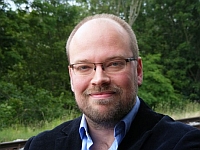
Viktor Venhorst is cum laude afgestudeerd in de Demografie en heeft daarnaast een master Economie. Zijn proefschrift ‘Smart Move? The Spatial Mobility of Higher Education Graduates’, werd gewaardeerd met het judicium Cum Laude (2012).
Naast zijn promotietraject heeft Viktor het project ‘Brain drain of brain gain; hoger opgeleiden in grote steden in Nederland’ uitgevoerd, in samenwerking met Nicis Institute in Den Haag en een consortium van vijf Nederlandse steden. Daarvoor (2006–2007) heeft Viktor gewerkt aan een onderzoek naar bevolkingskrimp in de drie noordelijke provincies, in samenwerking met een aantal woningcorporaties. Onderzoek naar de locatiekeuzes van hoger opgeleiden heeft de afgelopen tien jaar ook internationaal een hoge vlucht genomen. Het beschikbaar komen van microdata heeft dit in belangrijke mate gefaciliteerd. Zowel lokale als landelijke overheden realiseren zich dat de aanwezigheid van goed opgeleide werknemers, en de mate waarin zij hun vaardigheden kunnen toepassen op de regionale arbeidsmarkt, van groot belang is voor de toekomstige ontwikkeling van regio’s. Daarnaast is er veel interesse in de rol van deze groep in het opstarten van innovatieve bedrijven, bijvoorbeeld in samenwerking met de hogescholen en universiteiten in een gebied. Dit betreft niet alleen de kernregio’s maar zeker ook als de meer intermediaire en perifeer gelegen gebieden, waar een belangrijk deel van economische ontwikkeling gerealiseerd wordt.
2011
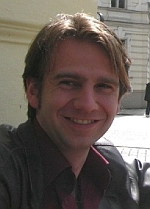
Tijdens de Zomerceremonie van de RUG werd de prijs aan dr. Robbert Maseland, universitair docent bij de Faculteit Economie en Bedrijfskunde van de RUG uitgereikt.
Dr Robbert K.J. Maseland (1975) is universitair docent bij de faculteit Economie en Bedrijfskunde van de RUG en studeerde ontwikkelingsstudies en toegepaste economie aan de Radboud Universiteit Nijmegen. Aansluitend was hij werkzaam als onderzoeker-docent bij de Nijmeegse universiteit en promoveerde er in 2006. Sinds 2009 is hij als universitair docent verbonden aan de afdeling International Economics and Business van de RUG. Maseland heeft volgens de jury een fundamentele bijdrage geleverd aan het economische vakgebied door een integratie van waarden en normen in economische theorievorming. Schijnbaar moeiteloos verweeft hij inzichten uit de sociologie en de psychologie met economische theorie, waarbij hij de controverse niet schuwt. Maseland heeft in publicaties in vooraanstaande tijdschriften, waaronder Nature, aangetoond dat een groot deel van de bestaande methoden om waarden en preferenties te meten feitelijk onjuist is. Volgens hem weerspiegelen verschillen in economisch keuzegedrag eerder de omstandigheden dan diepgewortelde waarden en opvattingen. In feite, aldus Maseland, zouden de meeste mensen onder gelijke omstandigheden hetzelfde gedrag vertonen.
